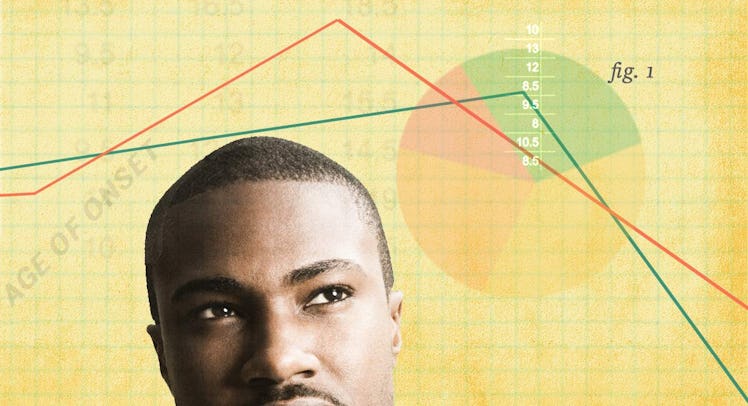Scientific Data Shows Burping Your Baby Isn’t Helping
Babies aren’t less colicky when they’re burped and may even be less likely to spit-up if you let them digest in peace.

New parents know the drill. After every feeding, you need to firmly pat your infant on the back until he or she lets one rip. Burping the baby prevents discomfort, forestalls spit-ups, and reduces the pain of colic (a condition best treated with herbal tea or gripe water).
So goes the conventional wisdom. But science says that’s all incorrect.
Babies aren’t less colicky when they’re burped, studies suggest, and may be less likely to spit-up if you just leave them alone to digest in peace (instead of banging on their backs). As for colic, the bad news is that basically nothing can fix it and herbal remedies that claim to help are usually scams. The good news is that colic is a normal part of childhood, and it goes away on its own.
Here’s a breakdown of the numbers behind these conclusions:
You Probably Don’t Need To Burp Your Baby
Look, if your little one is clearly trying to burp, a quick pat on the back certainly won’t hurt and might even help. But ritualized burping after every feeding doesn’t seem to make infants more comfortable. The data in the following graph is from a 2015 study that enrolled 71 mother-newborn pairs. Half agreed to burp their babies after every feeding and half agreed to keep their hands to themselves. The result? Burped and non-burped babies cried about the same. Go figure.
Meanwhile, burped babies were significantly more likely to spit-up. So keep that in mind next time you’re desperately patting your babies back in the middle of the night for no reason.
Colic Is Normal And Goes Away On Its Own
Scientists have been tracking colic for decades. It sure doesn’t look like babies enjoy it (and we have no idea what causes it) but it’s so predictable that studies have pinned down its trajectory.
The following data is based on an old study from 1954, aptly entitled “Three Months Colic”. Even then, researchers knew that but 12 percent of babies who get colic present with symptoms before two weeks of age, and that the vast majority are done with colic by three months (we know; it feels like an eternity). Studies haven’t demonstrated that burping your baby will help with the symptoms or make colic less likely, and no conventional medications exist to treat it.
Alternative Medicine Won’t Help With Colic
There are several less conventional approaches to treating colic that are currently under investigation. The chart below was culled from a study conducted in 2011 and published in Pediatrics, which assessed the evidence behind 15 “alternative” colic therapies. Although some therapies showed promise the study found major limitations behind each claim, some of which we’ve highlighted in our chart. For the authors of the study, the takeaway was clear: “The notion that any form of complementary and alternative medicine is effective for infantile colic currently is not supported from the evidence from the included randomized clinical trials.”
This article was originally published on